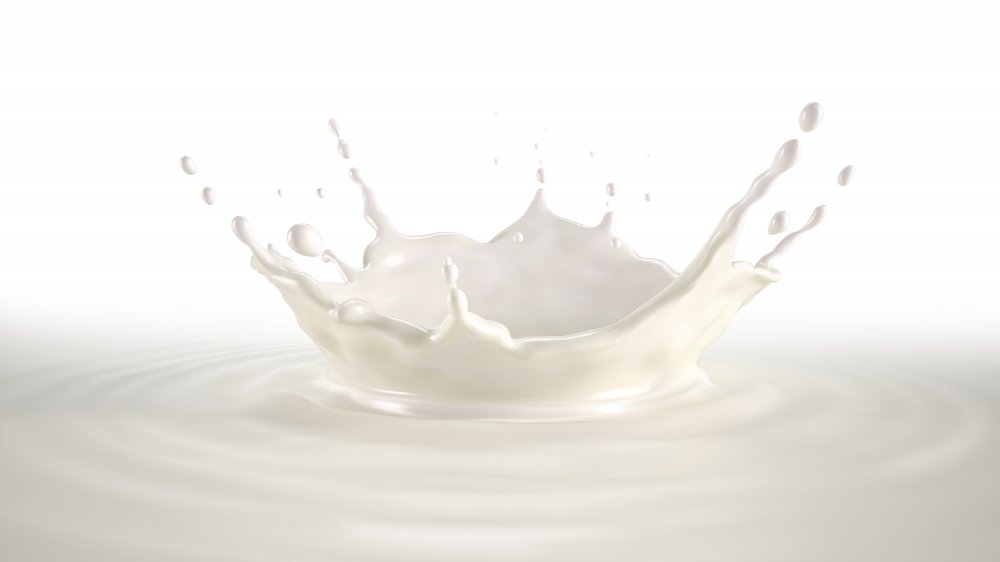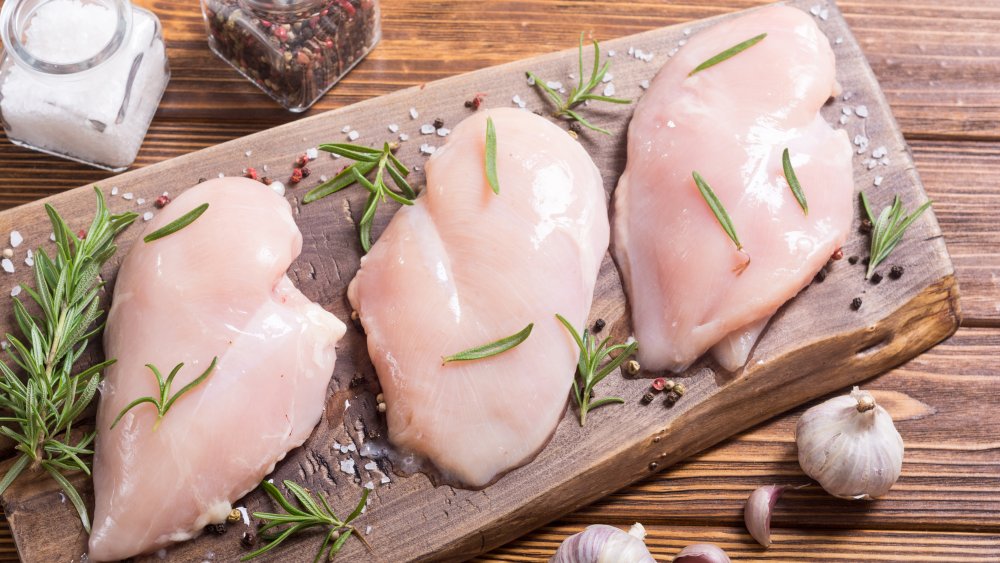The Real Reason You Should Soak Chicken In Milk
Perhaps the second most common worry about preparing meat besides it being over- or under-cooked is how to best ensure that it is tender. Given the fact that in many parts of the world (and for large portions of history), meat was considered to be a luxury (via Earthbound), and given that meat dishes are often more expensive than their vegetarian counterparts, getting the meat tender is a question that's on the mind of many home cooks. Fortunately, there are a number of methods to tenderize meats, like chicken, with household ingredients.
Vinegar, alcohol, and lemon juice have all been suggested for use in chicken marinades (via The Spruce Eats). A slightly more interesting option involves the use of papaya. If you live in a tropical climate or happen to have picked one up at the grocery store, you can use its inedible seeds to tenderize the meat, as they contain an enzyme called papain, which breaks down the protein in the meat (via Double Brush).
Why milk works as a meat tenderizer
Of course, there's also the option of using a metal meat tenderizer if you're willing to put some elbow grease into your dinner preparations.
Another popular possibility for tenderizing chicken is the use of milk, or milk products (via Our Everyday Life). Although we don't think of milk of a sour cooking ingredient (unless, of course, it's gone bad), milk does contain lactic acid. Similar to how acidic ingredients such as vinegar and lemon juice break down the protein in meats, lactic acid acts in the same manner.
There is some thought that the calcium in milk also encourages the breakdown of chicken by encouraging the speed of a naturally-occurring enzyme in the meat, although the scientific process behind it isn't fully understood. In addition to fresh cow's milk, fermented milk products, which contain more acid than in regular milk, are often used tenderize chicken — for example, yogurt in Greek and Indian cuisine, and buttermilk to marinate fried chicken before it hits the fryer.

